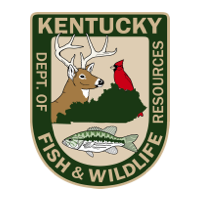Red Cross program comes to Lone Jack
Published 6:03 am Wednesday, June 6, 2018
The Lone Jack School Center FRYSC invited the American Red Cross to conduct the pillowcase program for second- through fourth-grades.
The American Red Cross Pillowcase Project, sponsored by Disney, is a free, interactive preparedness program designed for ages 8 to 11. The program aims to increase awareness and understanding of natural hazards and teaches safety, emotional coping skills, and personal preparedness.
The American Red Cross presenters taught the importance of escaping a fire in a burning house. The presenters placed emphasis on the seriousness of getting out of a house if one smells smoke and the length of time it takes for a house to burn. Students were taught that they need to be out in two minutes or less, have an escape route for at least two ways out of the house, a meeting place outside, and to never go back into the house for anything. Students should stay in the designated meeting place for safety.
The American Red Cross distributed work booklets to take home to discuss the safety procedures with their parents or guardians. The children were also taught about the importance of smoke alarms. They were given information on how to keep the batteries changed and to test them at least once a month.
Since Hurricane Katrina, the Walt Disney Corporation and the American Red Cross have teamed up to put together pillowcases for children who may become trapped in devastating incidents, such as tornadoes and hurricanes, where they may need necessities for survival. Through instructor-led presentations, students learn the best ways to stay safe and how to create their own emergency supply kits by packing essential items in a pillowcase for easy transport during a disaster. Lone Jack students were given the opportunity to decorate and personalize their own pillowcases and share what they learned with friends and family.
The goals set forth by the program are for students include:
• Identify the best way to stay safe during emergencies that can occur in their communities.
• Identify the best ways to prevent and stay safe during a home fire.
• Use coping skills to help manage stress during emergencies and in everyday situations.
• Gain confidence in their abilities to be prepared for emergencies through hand-on activities.
• Use their knowledge to act as advocates for emergency preparedness in their homes and communities.
• Discuss the role science play in emergency preparedness.
• Understand and communicate the work of the Red Cross in their communities.








